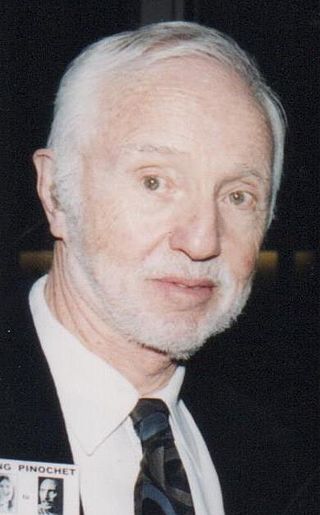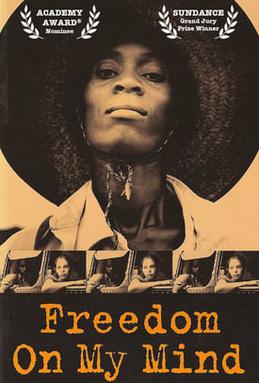Related Research Articles

The National Film Board of Canada is a Canadian public film and digital media producer and distributor. An agency of the Government of Canada, the NFB produces and distributes documentary films, animation, web documentaries, and alternative dramas. In total, the NFB has produced over 13,000 productions since its inception, which have won over 5,000 awards. The NFB reports to the Parliament of Canada through the Minister of Canadian Heritage. It has bilingual production programs and branches in English and French, including multicultural-related documentaries.

Georges-Henri Denys Arcand is a Canadian filmmaker. During his four decades career, he became one of the most internationally-recognized director from Quebec, earning widespread acclaim and numerous accolades for his "intensely personal, challenging, and intellectual films."

The March of Time is an American newsreel series sponsored by Time Inc. and shown in movie theaters from 1935 to 1951. It was based on a radio news series broadcast from 1931 to 1945 that was produced by advertising agency Batten, Barton, Durstine & Osborn (BBDO). The "voice" of both series was Westbrook Van Voorhis. Produced and written by Louis de Rochemont and his brother Richard de Rochemont, The March of Time was recognized with an Academy Honorary Award in 1937.

Arthur Lipsett was a Canadian filmmaker with the National Film Board of Canada. His short, avant-garde collage films, which he described as "neither underground nor conventional”, contain elements of narrative, documentary, experimental collage, and visual essay. His first film, Very Nice, Very Nice, was nominated for an Academy Award.
Robin Spry was a Canadian film director, producer and writer. He was perhaps best known for his documentary films Action: The October Crisis of 1970 and Reaction: A Portrait of a Society in Crisis about Quebec's October Crisis. His 1970 film Prologue won the BAFTA Award for Best Documentary.
Charles Eli Guggenheim was an American documentary film director, producer, and screenwriter. He was the most honored documentary filmmaker in the academy history, winning four Oscars from twelve nominations.

Albert Maysles and his brother David Maysles were an American documentary filmmaking team known for their work in the Direct Cinema style. Their best-known films include Salesman (1969), Gimme Shelter (1970) and Grey Gardens (1975).

Haskell Wexler was an American cinematographer, film producer, and director. Wexler was judged to be one of film history's ten most influential cinematographers in a survey of the members of the International Cinematographers Guild. He won the Academy Award for Best Cinematography twice, in 1966 and 1976, out of five nominations. In his obituary in The New York Times, Wexler is described as being "renowned as one of the most inventive cinematographers in Hollywood."

The Anderson Platoon is a documentary feature by Pierre Schoendoerffer about the Vietnam War, named after the leader of the platoon - Lieutenant Joseph B. Anderson - with which Schoendeorffer was embedded. Two decades later, a sequel was released as Reminiscence.

Freedom on My Mind is a 1994 feature documentary film that tells the story of the Mississippi voter registration movement of 1961 to 1964, which was characterized by violence against the people involved, including multiple instances of murder.
Casals Conducts: 1964 is a 1964 American short film directed by Larry Sturhahn. It is a documentary about the cellist and conductor Pablo Casals. It won an Oscar at the 37th Academy Awards in 1965 for Best Short Subject. The Academy Film Archive preserved Casals Conducts: 1964 in 2013.
To Be Alive! is a 1964 American short documentary film co-directed by Francis Thompson and Alexander Hammid. The film is notable for its use of a multi-screen format and for winning the Oscar for Documentary Short Subject at the 38th Academy Awards.

Marshall Curry is an American documentary director, producer, cinematographer and editor. His films include Street Fight, Racing Dreams, If a Tree Falls: A Story of the Earth Liberation Front, Point and Shoot, and A Night at the Garden. His first fiction film was the Academy Award-winning short film The Neighbors' Window (2019).

Swedes in America is a 1943 American short documentary film directed by Irving Lerner and produced by the Overseas Motion Picture Bureau of the United States Office of War Information. It was nominated for an Academy Award for Best Documentary Short.
The Road to the Wall is a 1962 American short documentary film produced by Robert Saudek about the construction of the Berlin Wall. It aired as an episode of the United States Army's television show, The Big Picture. It was nominated for an Academy Award for Best Documentary Short.
Breaking the Habit is a 1964 American animated short documentary film directed by John Korty about cigarette smoking and lung cancer. It was nominated for an Academy Award for Best Documentary Short.
Children Without is a 1964 American short documentary film directed by Charles Guggenheim, about a young girl and her brother growing up in the housing projects of Detroit. It was nominated for an Academy Award for Best Documentary Short, losing to another film by Guggenheim, Nine from Little Rock. Children Without was preserved by the Academy Film Archive in 2016.
Cynthia Wade is an American television, commercial and film director, producer and cinematographer based in New York City. She has directed documentaries on social issues including Shelter Dogs in 2003 about animal welfare and Freeheld in 2007 about LGBT rights as well as television commercials and web campaigns. She has won over 40 film festival awards, won an Oscar in 2008, and was nominated for her second Oscar in 2013.

30 for 30 is the title for a series of documentary films airing on ESPN, its sister networks, and online highlighting interesting people and events in sports history. This includes four "volumes" of 30 episodes each, a 13-episode series under the ESPN Films Presents title in 2011–2012, and a series of 30 for 30 Shorts shown through the ESPN.com website. The series has also expanded to include Soccer Stories, which aired in advance of the 2014 FIFA World Cup, and audio podcasts.
References
- ↑ "Point of View". Movies & TV Dept. The New York Times . 2012. Archived from the original on October 16, 2012. Retrieved November 29, 2008.
- ↑ "The 38th Academy Awards (1966) Nominees and Winners". oscars.org. October 4, 2014. Archived from the original on January 11, 2015. Retrieved May 19, 2019.